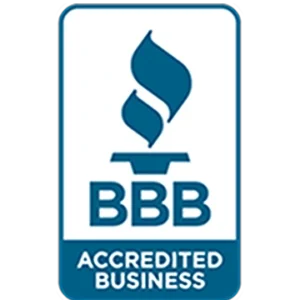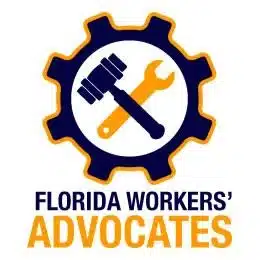MIAMI PERSONAL INJURY LAWYER
If you’ve been injured due to someone else’s negligence in Miami, you need experienced attorneys to fight for your rights and compensation. Payer Law Personal Injury Lawyers have over 30 years of experience helping Miami injury victims and their families secure justice.
By taking an aggressive approach to legal representation, we’ve already won over $100 million in settlements and verdicts for our injured clients in South Florida.
Contact our law offices in Miami, FL, at (305) 363-7099 to schedule a free consultation and learn how a lawyer can help.
Home » Miami Personal Injury Lawyer
Reviewed by: James D. Payer
KEY TAKEAWAYS
- In Miami you typically have 2 years to file a personal injury lawsuit.
- We've recovered over $100 million for personal injury victims in South Florida.
- We offer services in English and Spanish
- We offer free consultations and no fees unless we win your case
Table of Contents
Why Choose Our Miami Personal Injury Lawyers?
Recovering fair compensation can be crucial for your family’s future after an accident. Medical bills are likely piling up, and you may be missing time from work because of painful, debilitating injuries. At Payer Law, our attorneys will work tirelessly to identify all your potential avenues for recovering compensation, treating every case, no matter how big or small, with the personalized attention it deserves. We offer services in both English and Spanish, and our team is available 24/7 for any client concerns.
Decades of Experience
Payer Law has nearly 30 years of experience successfully handling personal injury cases in Miami and across Florida, recovering millions of dollars for our clients. Some of our most significant settlements and verdicts include the following:
- $27.56 million jury verdict for a woman struck by a speeding vehicle on I-95, causing severe brain injuries
- $2.25 million in compensation for a client who suffered a traumatic brain injury in a car accident
- $2 million settlement for a client who suffered chemical exposure at work, leaving them with breathing problems
Dedicated to Maximizing Your Compensation
Our attorneys have a long track record of success in the courtroom, securing many multi-million dollar jury verdicts over the years. However, we also have the skills and knowledge to succeed in out-of-court negotiations, standing up to insurance companies to ensure you get the full, fair compensation you deserve.
No Fees Unless You Win
Payer Law operates under a contingency fee structure, meaning you won’t pay us anything unless we win your case.
Personalized Attention for Every Case
At Payer Law, you are more than just a case file. We take a personalized approach, treating each client like family and offering direct attorney-client communication. We’re committed to giving you and your family the ability to focus on healing and recovery while we take care of the legal process.
Recognized and Award-Winning Legal Representation
Payer Law is a member of several elite legal organizations, including the Million Dollar Advocates and the Multimillion Dollar Advocates. Additionally, many of our lawyers have been awarded titles by Super Lawyers and other legal excellence groups.

It Pays to
Call Payer!
Types of Personal Injury Cases We Handle in Miami
Because Payer Law is committed exclusively to personal injury cases, our attorneys have the expertise and resources to handle any type of personal injury claim in Miami and Miami-Dade County. Some of our primary practice areas include:
How a Miami Personal Injury Lawyer Can Help?
When you hire Payer Law, our team will manage every aspect of your personal injury claim, allowing you to focus on what matters most—your recovery.
Case Evaluation
Our attorneys will begin by assessing the value of your case. This includes evaluating the nature and severity of your injuries, the circumstances surrounding your accident, the cost of your medical bills, and other relevant factors specific to your situation in Miami-Dade County.
Evidence Collection & Identifying Liable Parties
Next, our team will gather all available evidence to strengthen your case, identify all responsible parties, and determine who should be held accountable for your injuries. This includes reviewing accident reports, medical records, and any other necessary documentation.
Negotiating for a Fair Settlement
Our experienced attorneys will negotiate with the insurance companies or opposing parties to secure a settlement that fully compensates you for your damages, including medical expenses, lost wages, and pain and suffering.
Trial Representation
If a fair settlement cannot be reached, we are prepared to take your case to court. Our attorneys will represent you at trial, advocating fiercely for your rights and fighting for the compensation you deserve in Miami-Dade County’s courts.
Client Testimonials: What Our Clients Say
With over 100 five-star reviews on Google, our client reviews speak for themselves.
- I’ve been dealing with Payer Law for about 20 years and I can vouch for their exceptional legal experience and incomparable customer service. I’m honored to know this group of professionals. I recommend Mr. James Payer, and longtime staff, Nick and Lysette to anyone that has a workers compensation and auto accident claims.
– Angeles B. - My family and I have been with Payer Law for over 23 years, and I can attest to their phenomenal customer service. Mr. Payer is an exceptional lawyer, along with his amazing staff. Mr. Payer and Genesis have always been a call away, and I have recommended and will continue to recommend them to anyone with workers’ compensation or personal injuries.
– Carolina T. - Payer Law is the best injury law firm there is. They helped me get a great settlement after a car accident. Mr. Payer and his staff truly care about their clients. They treated me like family and you don’t find that often. I highly recommend them! A+++
– Alejo M.
Recent Case Results
In Miami, Payer Law has recovered tens of millions of dollars in recent settlements and verdicts for injured people, giving them the financial stability they need to rebuild their lives. We have recovered:
- $10 million jury verdict for a garbage truck worker run over by a negligent co-worker on the job.
- $1 million settlement for a warehouse worker who suffered a traumatic brain injury on the job, limiting his ability to walk. Before the settlement, we also recovered more than $500,000 in workers’ compensation benefits.
- $2.7 million settlement for a tree trimmer electrocuted by a power line on the job.
What to Do After an Injury in Miami?
After an accident, there are several steps you can take to not only protect your well-being but to increase your chances of successfully recovering compensation for your injuries. Speaking with an attorney before giving any statement or information to insurance companies is crucial.
Seek Medical Attention Immediately
It’s important to seek medical attention after an accident, even if you don’t think you were injured or if your injuries don’t appear to be serious. Some injuries aren’t immediately apparent after accidents, and others may be more severe than they initially seem. Medical records play a crucial role in personal injury claims, and showing that you sought medical attention immediately makes it easier to prove that the accident caused your injury.
Document Everything
When you’ve been injured in an accident, documenting everything you can is one of the best ways to build a strong case. Take photos of the accident scene and your injuries, keep all your medical bills and records, collect accident reports, and get witness statements if possible.
Don’t Speak to Insurance Companies Without a Lawyer
Insurance adjusters work against victims’ interests to preserve their company’s bottom line. Giving a recorded statement to an insurance company before speaking with an attorney could lead to a lower payout, as the company may attempt to use your own words against you.
Contact a Personal Injury Lawyer Near You ASAP
It’s important to enlist the help of a Miami personal injury lawyer as early in the process as possible to ensure you can recover the compensation you deserve.
Free Consultation – No Win, No Fee
At Payer Law, we understand our clients are facing one of the most challenging times in their lives. Therefore, we treat them like family. We take an aggressive, hands-on approach to every case from the moment the client hires us through trial. If you or a family member has been injured in Miami, we’re here to offer the legal advice you need and deserve.
Contact Payer Law today for a free consultation to learn how our experienced Miami personal injury lawyers can help you recover the compensation you deserve. You won’t pay us a thing unless we win. Our Miami office is located at 12000 Biscayne Blvd, Suite 503.
Don’t Miss Your Window to File a Miami Personal Injury Lawsuit
Injury victims may be entitled to compensation
Frequently Asked Questions
How much does it cost to hire a Miami personal injury lawyer?
Payer Law Personal Injury Lawyers works on a contingency fee basis, meaning you pay us nothing upfront and won’t pay us anything unless we recover compensation for you. Our fee will be a pre-agreed percentage of any settlement or verdict we obtain.
How long do I have to file a personal injury claim in Florida?
Most personal injury victims in Miami have two years to file a personal injury lawsuit under Florida’s personal injury statute of limitations. The two-year deadline typically starts on the date of your accident. If you miss this deadline, you will likely lose your right to sue for damages under Florida law. However, this rule has some exceptions. An experienced Miami personal injury lawyer can determine the specific deadline for your case and ensure you don’t miss your opportunity to file.
What if the insurance company offers me a settlement?
Insurance companies are in the business of making money. The less compensation they pay to accident victims, the greater their profits, so they will work hard to minimize your compensation. Most of the time, the first offer you receive from an insurance company is a lowball. Avoid taking any settlement offer from an insurer without consulting an attorney first.
12000 Biscayne Blvd STE 503
Miami, FL 33181
(305) 363-7099
Hours: Open 24 hours daily
$27.56
MILLION
VERDICT
Car crash resulting in significant brain injuries
$3.10
MILLION
VERDICT
Jury verdict in ambulance liabilty damage case
$2.25
MILLION
VERDICT
Car accident resulting in
a TBI
$2.00
MILLION
VERDICT
Breathing injuries due to
chemical exposure
$1.65
MILLION
VERDICT
Our clients son was killed by an allegedly drunk driver
$1.25
MILLION
VERDICT
Car accident resulting in lower leg amputation
$1
MILLION
VERDICT
Car accident resulting in multiple facial damages

Injured?
Contact Us Today
















